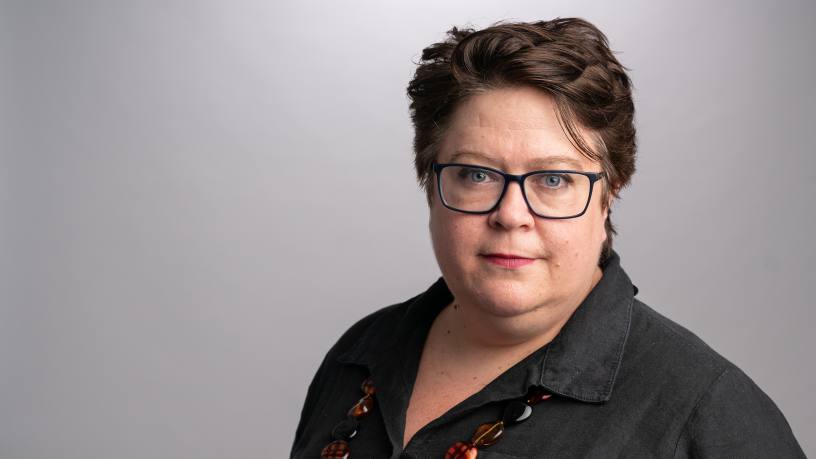Every bank advert needs to be devoid of music, and start with a blank screen, then a list of rates are simply displayed with the name of the organisation — so said comedian Phil Wang on a comedy radio show in the UK last week. He went on to say the advert should end with one word: “sorry”.
All Wang wants from his bank are “bare facts”, commenting: “I don’t want to see a horse galloping along a cliff, I don’t see what that has to do with transfer fees.”
Wang’s annoyance at “banks that want to be your friend” on the BBC Radio 4 show Room 101, with fellow comedian Paul Merton, received a large amount of applause from the in-person studio audience. Rather than a torture room as described in the novel 1984, the show invites celebrities to “banish” items or activities that annoy them.
This item, illustrated by an old advert for Nationwide Building Society in which a poem by UK writer Jo Bell titled The currency of kindness: working for Nationwide is read over music composed by Edward Elgar, was enthusiastically cast into the symbolic Room 101.
Wang has a point that he isn’t interested in “poems about ISAs” (neither am I). And as for the idea of a “currency of kindness”, not even Nationwide would allow its customers to pay off their overdraft with “kindness”, he adds.
Although the bit was funny, I feel it does put many universal banks in a difficult position. Banks play a vital role in most people’s personal and business lives. Unless you decide to move to the middle of nowhere and live off-grid, your life will require you seek out the services of a secure, regulated bank. Most people receive a salary or payment for a job, take out loans or mortgages, and hope to maintain a pension. All those things are generally managed and provided by a bank.
I would bet there isn’t a soul alive who spent the past 15 or so years involved in the modern fintech revolution who didn’t hear someone say during a keynote or a panel discussion that “banks need to realise that no one wants to take out a mortgage, they want to buy a house”. The reason being that the “rates” and “bare facts” that people like Wang claim they want from their bank are actually connected to life events that are often emotive and complex — like buying a family home.
Banks have been told to humanise their offerings and be more empathic in product design. Any secure, regulated entity with a bank licence can be trusted with your money, but many banks have been encouraged to also be liked. After all, Wang called for banks to also say “sorry” when shilling for your business.
According to Pay.UK and Finder, the number of UK customers switching accounts through the current account switch service was up by 76 per cent in April-June 2023 compared to the same period in 2022. And current account switching rates were up by 26 per cent in 2022 compared to 2021, with 41 per cent of people switching current accounts to get better online or mobile app banking. In the first half of 2023, there were nearly 700,000 current account switches.
That sounds like a lot of activity and a lot of bank customers taking advantage of CASS in the UK to move to a bank they like better.
However, let me put those numbers in perspective: 700,000 accounts make up only 0.9 per cent of the 75mn current accounts that make up the market. And that only accounts for the country’s nine largest banks. That number doesn’t include newer challenger banks such as Starling and Monzo.
If less than 1 per cent of the UK population is switching accounts (and the UK is not unique, globally), banks don’t really need to woo customers either with “plain facts” or commissioned poems recited to the strains of Elgar.
However, this week our investment banking editor Michael Klimes and senior reporter Aliya Shibli sat down for The Banker Exchange podcast to discuss our April cover story, which looks at the challenges many banks face when trying to recruit members of the current generation du jour — Gen Z, or those under the age of 28.
Turned off by long hours and the “greed is good” culture that banking has, at times, embraced, today’s emerging workforce is looking for purpose and meaning and pride in being part of an organisation that does good in the world, outside of a race for profits and bonuses.
That makes me think: who are those adverts featuring poems and galloping horses and middle-aged women starting businesses in flying sheds really for? If a well-produced piece of advertising and marketing can help a designer inside a bank build a more empathic mortgage offering or student loan choices, it might stop public figures like Wang demanding that banks say they’re “sorry” for being in business.
Liz is deputy editor of The Banker. You can connect with Liz on LinkedIn, or follow her on Bluesky.
Click here to start your free trial on thebanker.com, and sign up to the Digital journeys newsletter, as well as the four other pillar newsletters.






